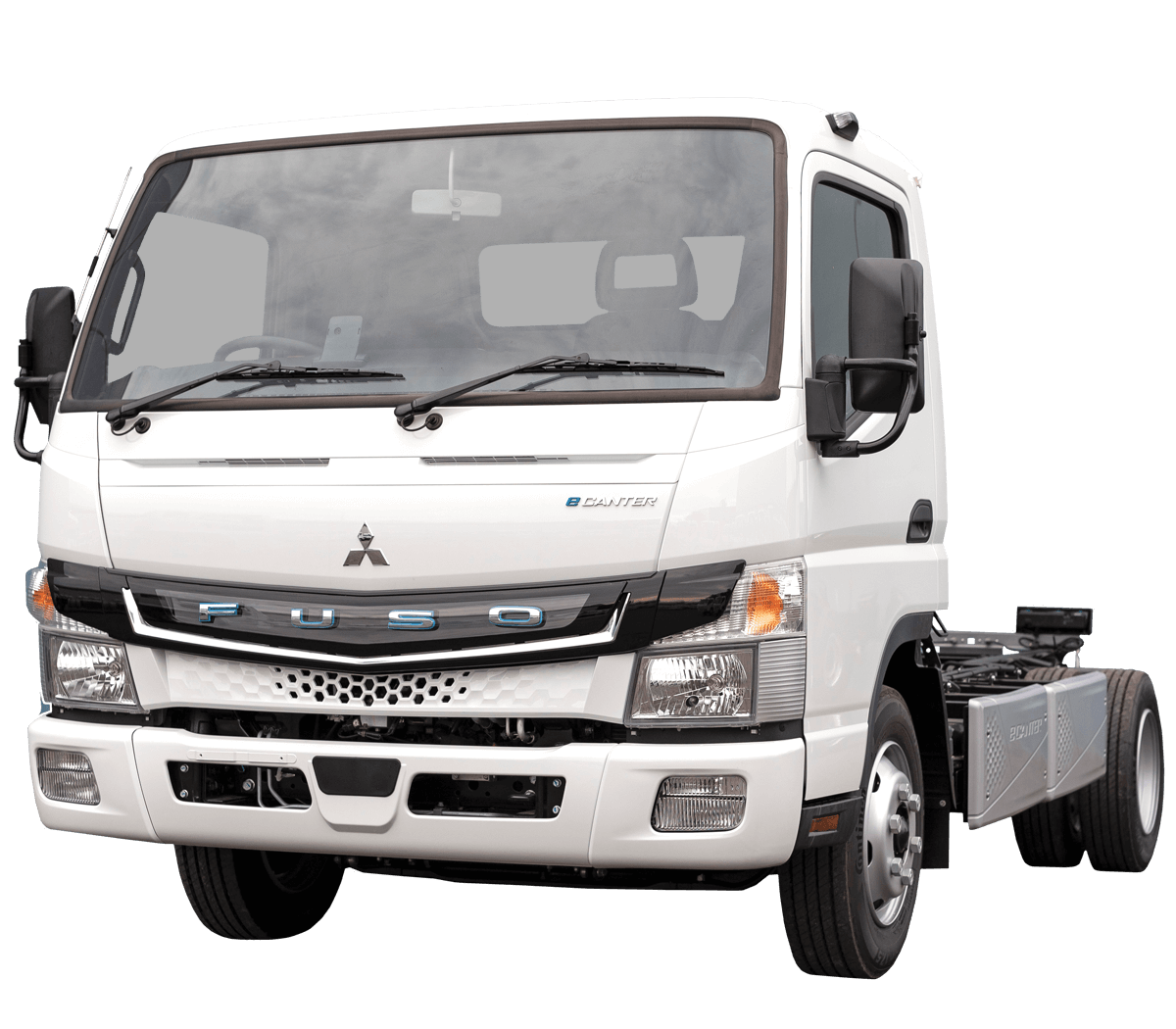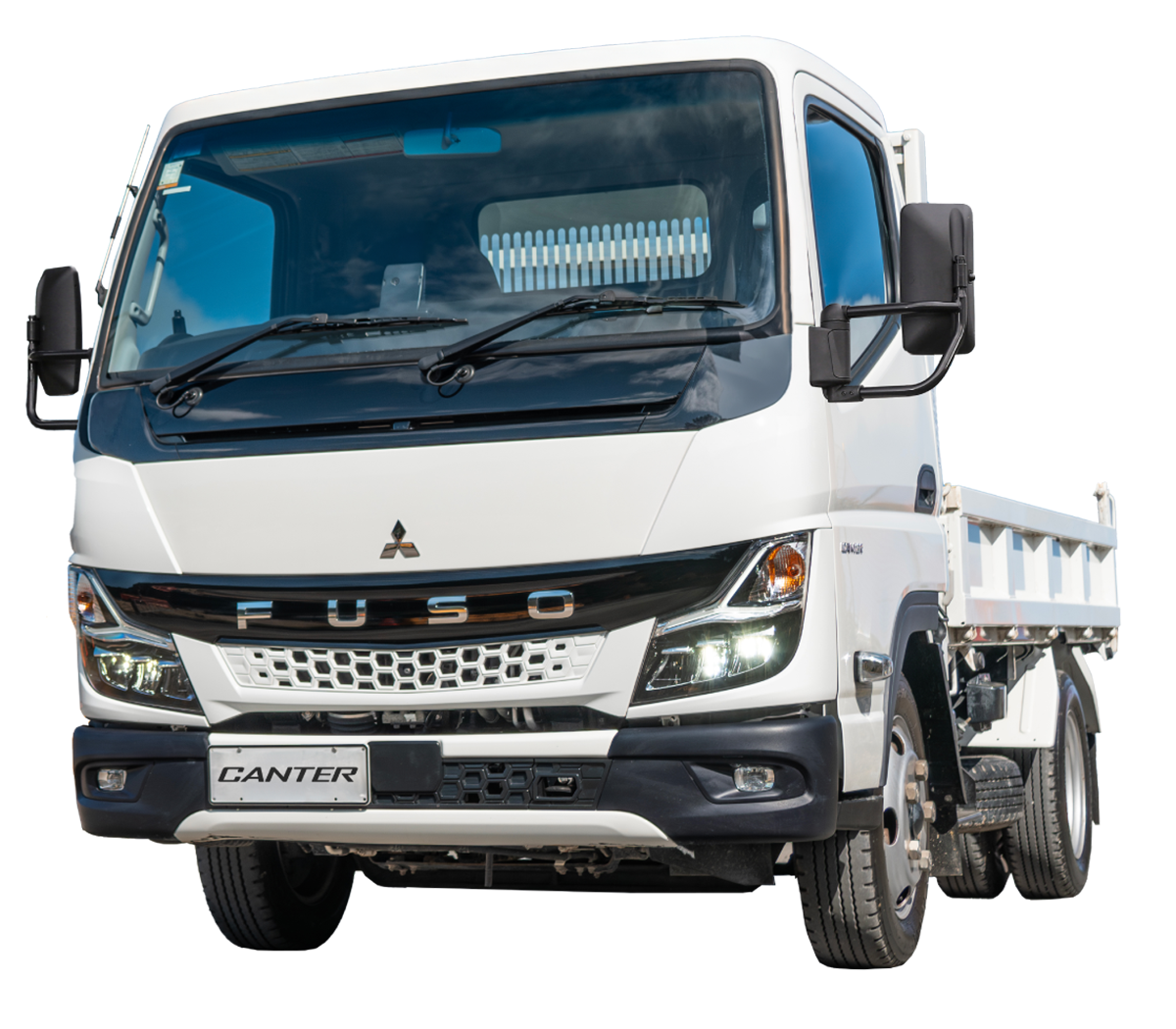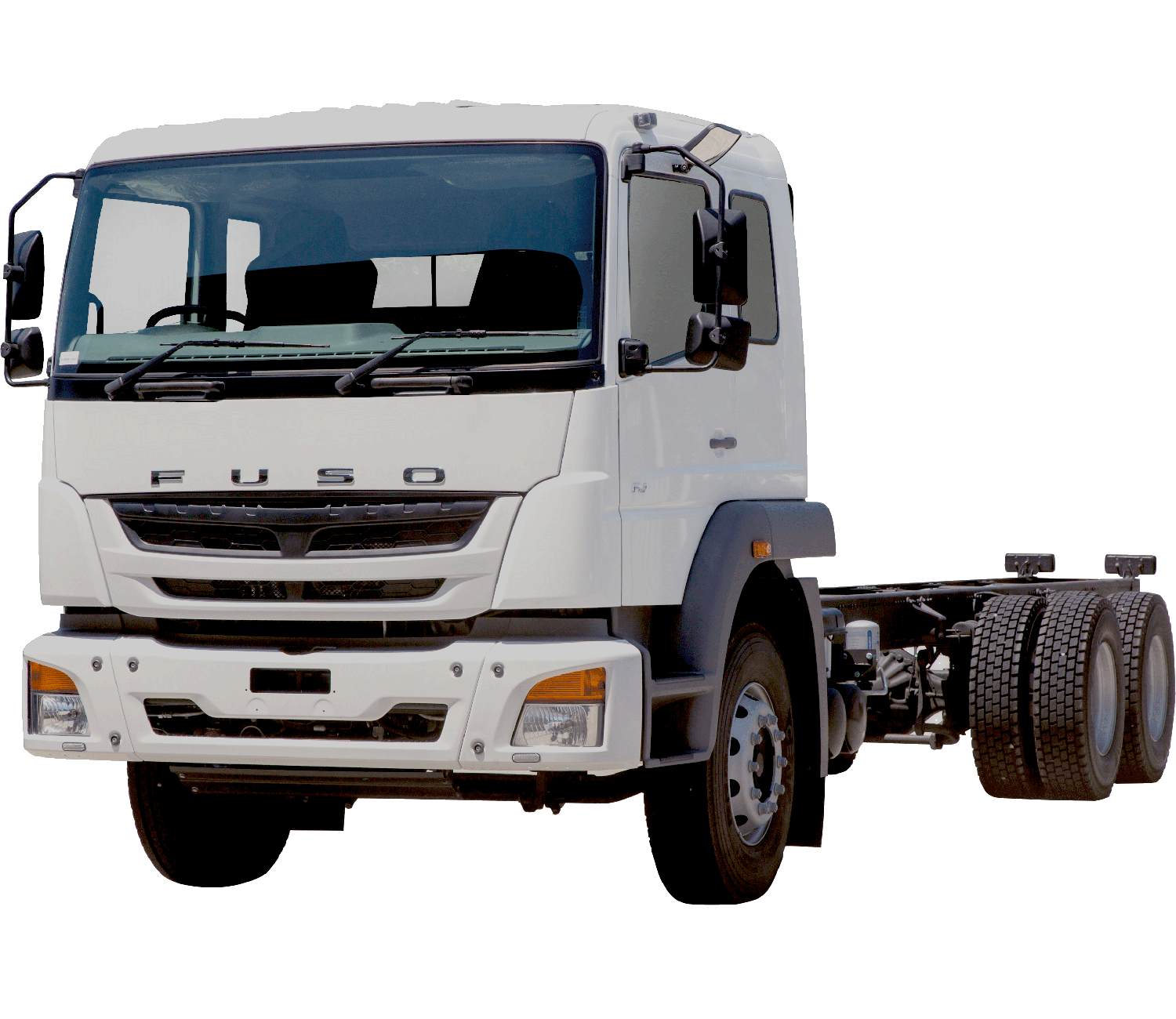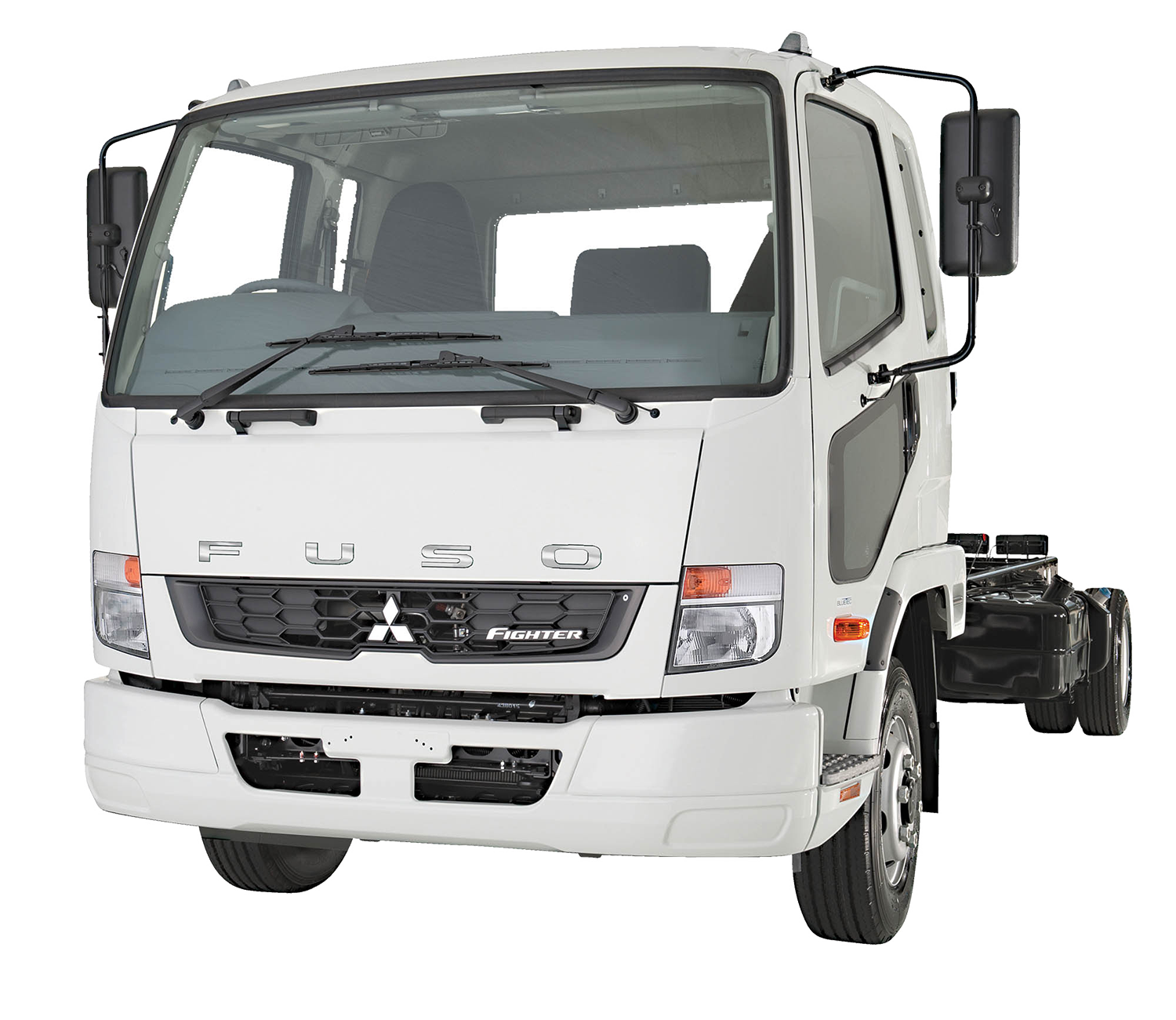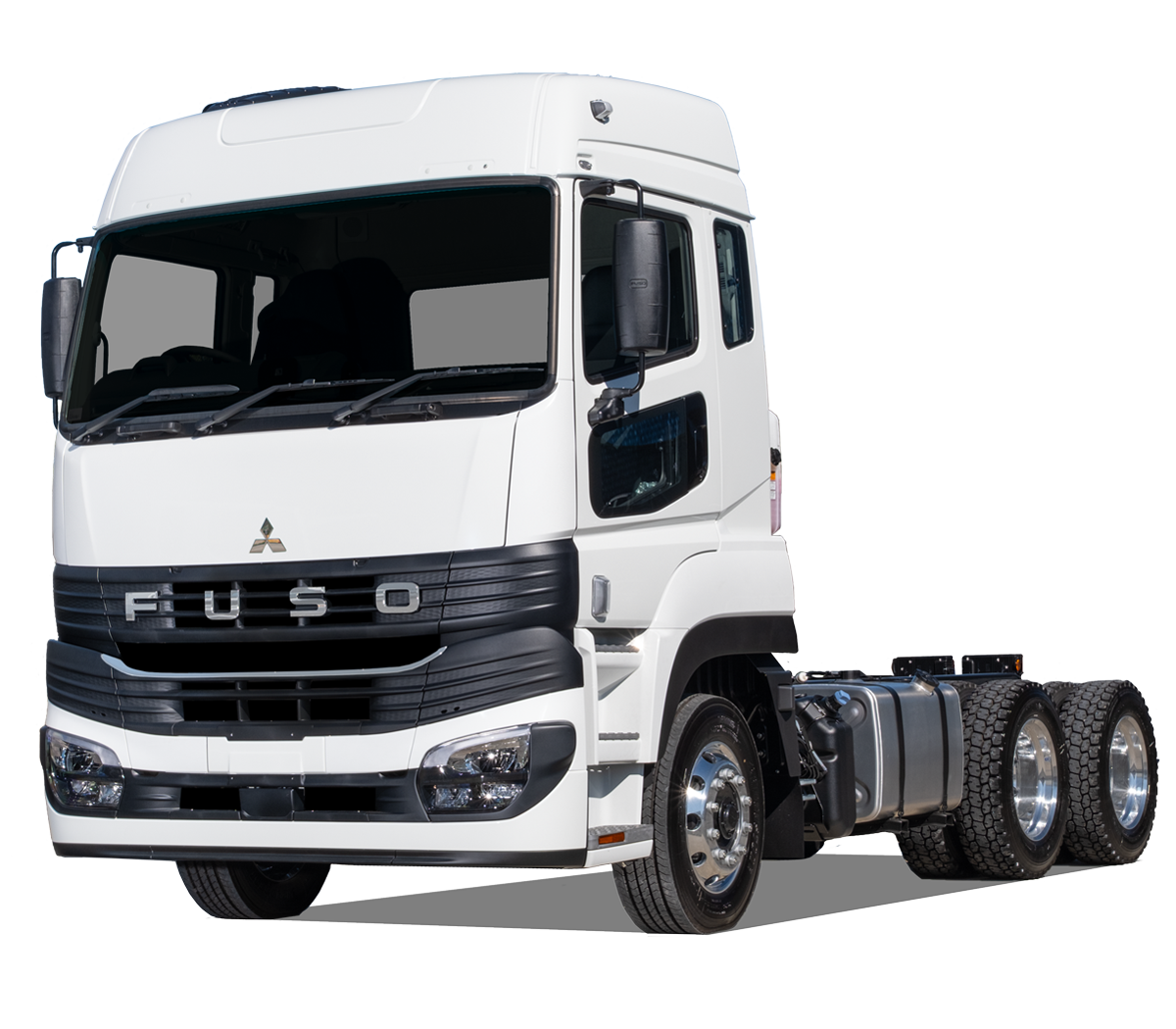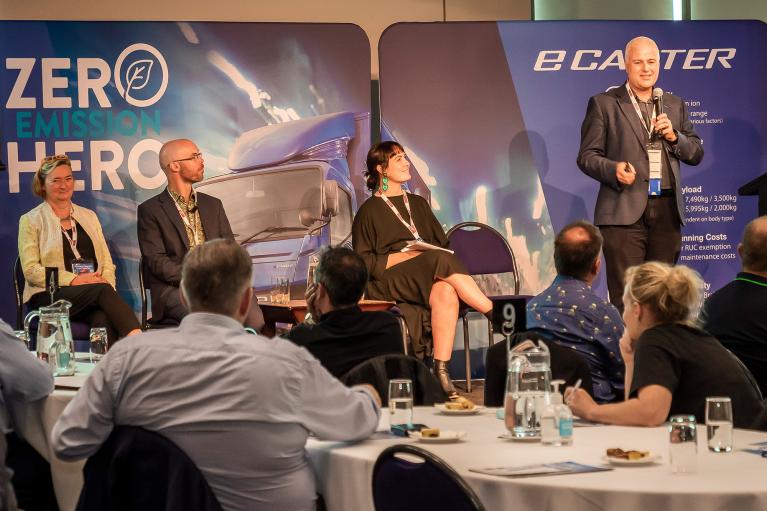Feature Article
Partnering for a sustainable transport supply chain
Held the day after the United Nations’ Intergovernmental Panel on Climate Change (IPCC) issued a damning report on global progress in reducing greenhouse gases, Fuso New Zealand’s ‘Partnering for a Sustainable Transport Supply Chain’ conference at Te Papa in Wellington delivered a proactive and encouraging message for those looking to transition to EV
The big question posed was when, not if the transport industry should begin the transition to zero-emission vehicles. The resounding consensus from delegates was that it should already be happening.
Representatives from government, energy providers, logistics companies and fleet operators gathered to discuss the challenges and smart solutions already being worked on in the big picture surrounding NZ’s move towards 30% zero emission transport by 2030.
Fuso New Zealand group manager sales & customer experience Kathy Schluter, who chaired the conference, said it was a momentous occasion when a trucking company shares a journey with government agencies and experts in sustainability.
She said: “This room today can play a major part in moving the decarbonisation of our transport fleet forward and ensuring that many other companies move forward with you.”
And she challenged delegates: “Are we prepared to procure services that are more expensive due to R&D from companies that are willing to front foot it and be pioneers? Could procurement teams extend contracts for those willing to invest in decarbonisation? Talk to your supply chain and support the reduction of your scope 3 emissions!”
One key takeaway was that it is the fleet operators who have already begun testing EVs, or who are beginning now, who will have the advantage in this brave new world. These are the leaders that conference presenters agreed the industry needs.
It was acknowledged that the shift from ICE vehicles is massive; comparable to the shift from horse and cart – and, just like then, those who don’t move with the times will be left behind.
The encouraging news is that there are a lot of smart, engaged people out there committed to enabling change.
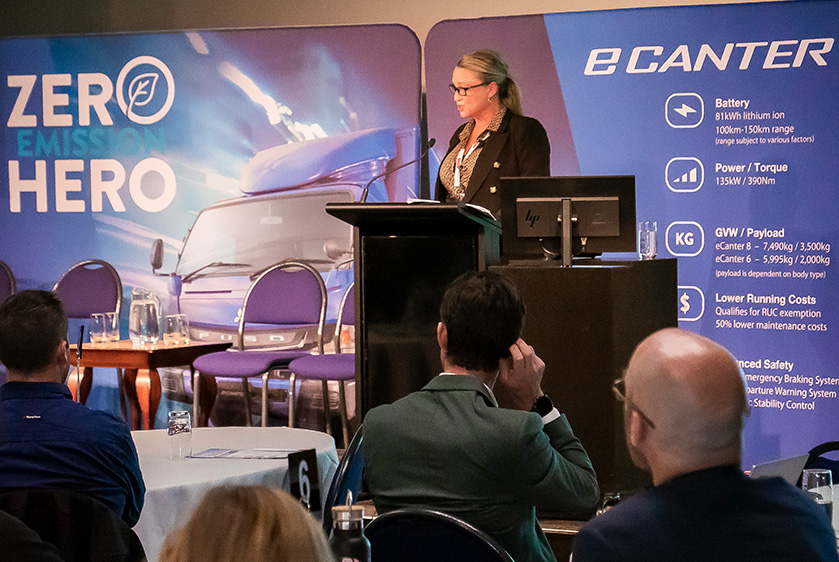
Energy supply
Andrew Renton, senior principal engineer for Transpower, discussed how New Zealand faces a unique social, environmental and economic opportunity in electrifying our transport sector. He also demonstrated how the national grid could supply the electric power required to support the significant uptake of EVs required to meet our national targets – and how companies with real estate could generate and store their own electricity through solar panel installation on warehouse roofs.
Renton brought a fresh perspective to how many of us view diesel versus electricity – in describing one litre of diesel simply as 10kwh of energy, he removed the distinction and said that, regardless of the source, his view comes down to units of energy required to power the country
Renton also said that Transpower has already been planning for the transition to zero emission vehicles and transport operators need to do the same, before the exponential change of technology overtakes. the ability to cope.
Transpower’s Electrification Roadmap states that, supported by the right actions across the sector, investment in increasingly cheaper renewable energy resources, such as wind and solar, could meet increased demand.
An additional 220MWpa would be required each year, every year, for 15 years to deliver on national targets, but Renton pointed out that New Zealand has been here before, when between 1960 and 1980, enough new power stations were built to deliver the same level of power demand to support the rise of household appliances combined with high population growth.
Government policy and support
The message from government speakers Sigurd Magnusson, senior advisor - environment, emissions and adaptation, and Christie Marsh, senior advisor - supply chain, was: Move now – don’t wait for policy!
They asked: What can you do with your procurement levers to help drive and accelerate the transition?
Government statistics show that our national vehicle fleet makes up a significant proportion of our total greenhouse gas emissions and approximately 43% of CO2 emissions. Our heavy vehicles comprise 3-4% of that but contribute 25% of total fleet emissions. Just under 93% of freight volumes within New Zealand are transported by trucks.
Most of these trucks are only doing relatively short trips:
- 60% of all trips being under 100km
- Only 3.1% of truck trips were over 400km
- Even for the heaviest trucks, only 7% of trips were longer than 500km
Kathy Schluter said that these statistics support the key role the FUSO eCanter – which has a real world range of 130km in a single charge, depending on driver and build – can play in decarbonising commercial transport emissions.
Fleet logistics
Continuing one of the themes of the conference that ‘we’re all in this together’, Retyna managing director Liz Yeaman highlighted some of the trailblazing schemes and thinking taking place around the world to facilitate a smart, efficient transition to zero-emission transport solutions.
Retyna is an independent specialist focusing on electric vehicles and renewable energy for transport.
Yeaman placed New Zealand’s decarbonisation journey within a global context, demonstrating how many other countries and global brands are moving fast in the same direction; particularly among signatories of the Memorandum of Understanding on Zero-Emission Medium- and Heavy-Duty Vehicles.
Yeaman also pointed to how the need for various elements in battery production, available from a number of countries, could go some way towards removing our reliance on major oil producers such as the US, Saudi Arabia, Russia and China; and looked at end of life initiatives to reduce pollution from battery components.
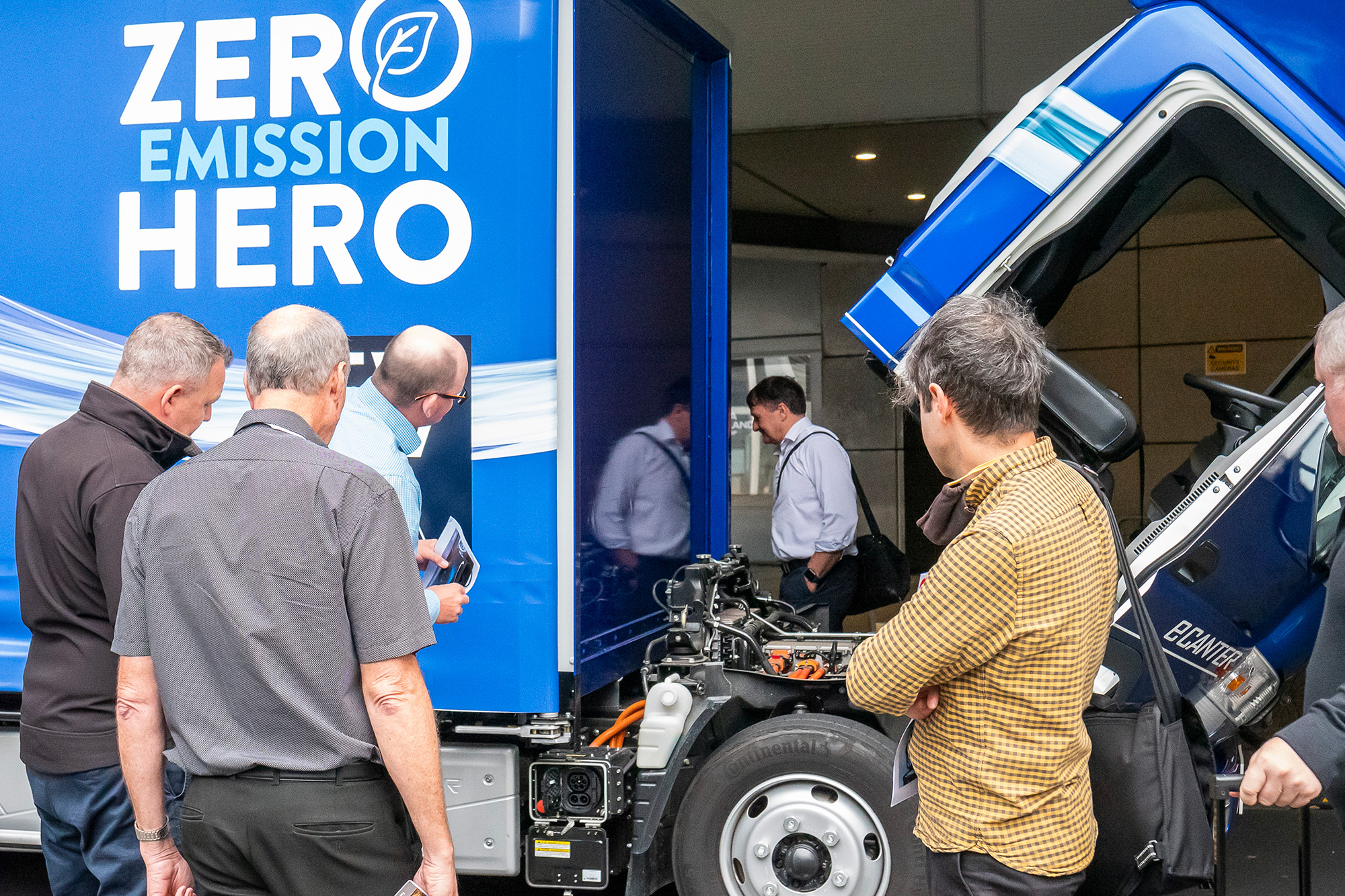
Fleet leaders
Brad Phillips fleet engineering and reliability manager Genesis was the first fleet manager in the southern hemisphere to introduce a FUSO eCanter into his fleet.
Phillips’ message was to “be brave!”. He continued: “Diesel is the easy option, but it’s not a sustainable one. If you are looking for a reason not to, you will always find one. Plan, do, check, adjust and measure, measure, measure!
“We wanted to lead and we wanted to share our journey to enable others to join us in decarbonising our transport sector. Not only that, we also wanted to test our operations and infrastructure to get an early and full understanding of the opportunities, the constraints and costs.”
Phillips stressed the importance of having the time to learn about and test EV fleet integration, and to form strategic partnerships within the EV sector. He said that there were a number of obstacles to overcome for the specific task of LPG delivery and the more time they had to deal with these, the better.
He reported that Genesis could reduce 25.5 tonnes of CO2 annually through FUSO eCanter, that driver feedback has been positive and that the truck generates great brand presence on the road and with customers.
“Fleet safety and sustainability are things I’m really passionate about and I welcome any conversation with those in the sector with the same goals,” Brad concluded.
Richard Inglis, senior manager product and partnerships at Genesis, also provided some useful insights into the company’s decarbonisation roadmap for its industrial customers.
Inglis discussed some of the decarbonisation projects currently under way in other industries, which are also working hard to reduce New Zealand’s greenhouse gas emissions, and suggested FUSO eCanter was a ‘low-hanging fruit’ for those looking to reduce on-road CO2.
Cost clarity
To help heavy fleet operators gain greater clarity into the cost of transport options, Ara Ake ‘New Zealand’s national new energy development centre’ has launched a free tool to help long-distance heavy freight companies and the public sector better understand the options for decarbonising their road fleet.
Jonathan Young, head of policy, research & insights at Ara Ake, demonstrated the scope of the tool, which takes a ‘total cost of ownership’ (TCO) approach to calculating the cost of road freight movements.
Young said that Ara Ake hopes this will be a useful resource for public and private sector decision-makers when they are making strategic decisions about transport investments.
The tool was developed for Ara Ake by NERA Economic Consulting, peer reviewed by the New Zealand Institute of Economic Research and includes freight data provided by EROAD.
Transport view
Ia Ara Aotearoa Transporting New Zealand chief executive Nick Leggett rounded out the presentations, saying: “We cannot avoid the global move to reduce emissions and take climate change action, including switching to alternative energy sources to generate better long-term returns and to mitigate the effects of climate change.”
Leggett had a wide-ranging view of the measures that could be taken to reduce emissions within the transport sector. You can read his opinion in full here.
